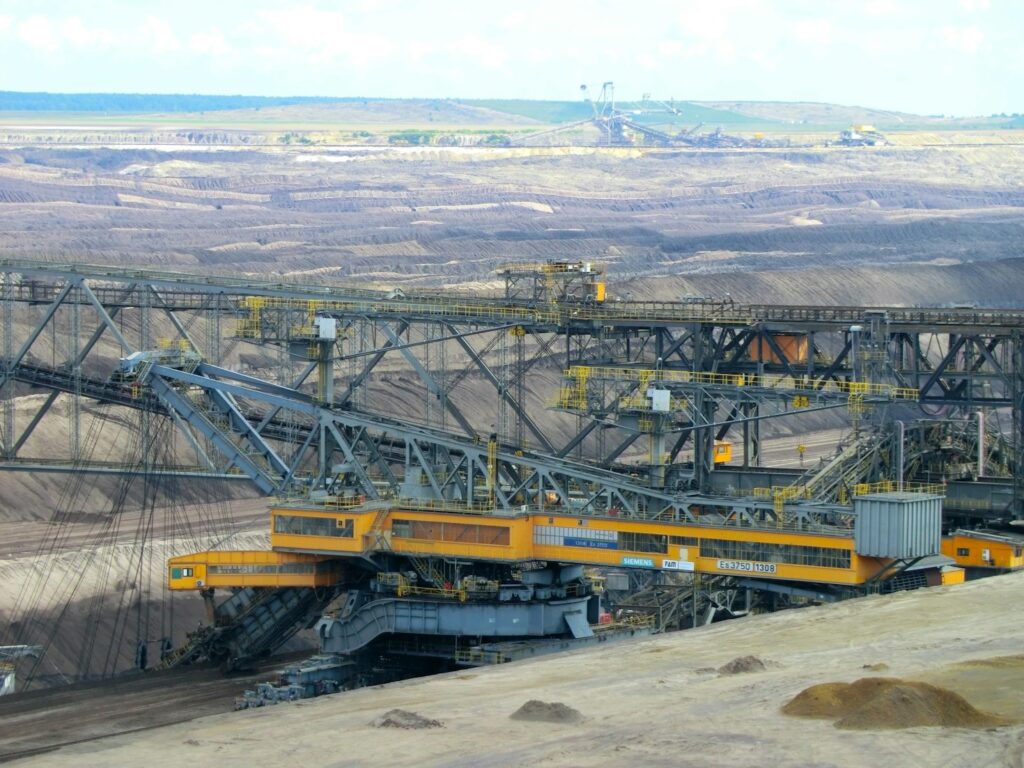Africa is widely recognized as the birthplace of coffee and home to the world’s most diverse flavor profiles, highest-quality Arabica, and naturally robust Robusta varieties. Whether you are a global importer, specialty coffee roaster, online retailer, wholesaler, café owner, commodity investor, or distributor, understanding how to buy African coffee beans is essential for quality consistency, pricing advantages, and long-term sourcing success.
This 10,000-word authoritative guide is the most comprehensive resource available for buyers seeking African coffee beans from leading origins such as Uganda, Ethiopia, Kenya, Rwanda, Tanzania, Burundi, and DR Congo. From flavor profiles to processing methods, logistics, pricing, certifications, market insights, and sourcing relationships, this guide explains every step clearly and professionally.
It also highlights Expedite Africa Group of Companies, a trusted, reliable, and experienced supplier of African agricultural commodities — including high-grade coffee beans sourced across East and Central Africa.
Whether you want specialty-grade Arabica, premium washed coffees, natural-processed beans, sun-dried Robusta, or organic microlots, this guide gives you the complete roadmap to buy African coffee beans with confidence and strategic advantage.
Why Buy Coffee Beans From Africa?
Africa’s coffee heritage is unmatched globally. The continent is blessed with volcanic soils, unique microclimates, high altitudes, and centuries-old cultivation traditions that produce beans with exceptional aromatic qualities.
1.1 Unmatched Flavor Diversity
African coffee offers complex, high-scoring flavor profiles rarely found in other regions:
- Ethiopia: Fruity, floral, jasmine-like, blueberry notes
- Kenya: Blackcurrant, sharp acidity, wine-like vibrance
- Uganda Arabica: Bright citrus, sweet caramel, floral body
- Uganda Robusta: Bold, chocolatey, creamy, smooth crema
- Rwanda: Orange blossom, silky texture, tea-like sweetness
- Burundi: Lemon zest, refined sweetness, clean acidity
- DR Congo: Cocoa, tropical fruit, sweet caramel
- Tanzania: Crisp, citrusy, balanced with floral undertones
No other region provides this depth of natural complexity.
1.2 Ideal Growing Conditions
Africa’s coffee thrives due to:
- High-altitude mountains (1,400–2,300m+)
- Fertile volcanic soils
- Warm temperatures with cool nights
- Consistent rainfall cycles
- Natural shade-grown systems
These factors slow cherry maturation and concentrate sugars — producing denser, more flavorful beans.
1.3 Organic & Traditional Production
Africa’s smallholder farming systems are naturally organic:
- Low chemical use
- Manual harvesting
- Sun-drying on raised beds
- Shade-grown cultivation
- Biodiverse environments
This appeals to buyers seeking authentic, chemical-free coffee.
1.4 Specialty Coffee Dominance
African origins consistently dominate specialty coffee auctions, global tasting championships, and high-scoring cupping competitions. Ethiopia, Kenya, Rwanda, and Uganda regularly achieve 86–90+ cupping scores, making them top origins for global specialty roasters.
1.5 Freshness & Traceability
Africa’s decentralized rural farming model — when paired with organized exporters such as Expedite Africa Group of Companies — ensures:
- Single-origin microlots
- Farm-to-roaster traceability
- Fresh seasonal harvest cycles
- Authentic sourcing stories consumers love
1.6 Strong Export Infrastructure
Major African countries have established robust export systems supported by:
- Coffee development authorities
- Cooperative unions
- Certified processing plants
- Commodity exchanges
- Quality testing laboratories
This ensures ethical sourcing and reliable delivery.
CHAPTER 2 — TOP AFRICAN COFFEE PRODUCING COUNTRIES (DETAILED BUYER PROFILES)
This section explains each major coffee origin in East and Central Africa — including growing regions, flavor profiles, processing styles, yield characteristics, and why global buyers source from each.
2.1 UGANDA — The Pearl of Africa’s Coffee Excellence
Uganda is Africa’s largest producer of Robusta and a rising powerhouse in high-altitude Arabica.
A. Growing Regions
Arabica:
- Mt. Elgon (Bugisu)
- Rwenzori Mountains
- Kigezi Highlands
Robusta:
- Central Region
- Masaka & Bukomansimbi
- Busoga
- West Nile
- Mid-North
B. Flavor Profiles
Arabica:
- Bright citrus
- Chocolate & caramel
- Floral notes
- Clean acidity
Robusta:
- Heavy body
- Dark chocolate
- Woody tones
- Excellent crema (ideal for espresso blends)
C. Why Buyers Choose Uganda
- One of only two countries with naturally indigenous Robusta
- Affordable pricing compared to Latin America
- Strong coffee institutions like UCDA
- Consistent supply all year round
- Rapid specialty coffee growth
Uganda is considered a must-have origin for roasters needing body, crema, and specialty arabicas.
2.2 ETHIOPIA — The Birthplace of Coffee
Ethiopia is the global gold standard for wild, heirloom Arabica varieties.
Growing Regions
- Sidamo
- Yirgacheffe
- Guji
- Limu
- Jimma
- Harrar
Flavor Profile
- Blueberry
- Jasmine
- Citrus
- Wine-like fermentation
- Floral sweetness
Why Buyers Choose Ethiopian Coffee
- Over 2,000 natural coffee varieties
- Iconic flavor complexity
- High cupping scores (86–91+)
- Strong cooperative unions
Ethiopia remains the world’s most mystical and beloved coffee origin.
2.3 KENYA — World-Famous AA Grades
Kenya coffee is highly prized for its sharp acidity and berry-like notes.
Growing Regions
- Nyeri
- Kirinyaga
- Embu
- Meru
Flavor Profile
- Blackcurrant
- Grapefruit
- Wine-like
- Berry sweetness
Why Buyers Choose Kenya
- Structured auctions
- Exceptional washing processes
- SL28 & SL34 varietals known globally
Kenya AA is a staple for high-end specialty roasters.
2.4 RWANDA — The Land of Bourbon Arabica
Rwanda produces elegant, floral, and sweet Arabicas.
Flavor Profile
- Orange blossom
- Caramel
- Floral acidity
- Smooth finish
Strengths
- Fully washed processing mastery
- Strong cooperative culture
- Highly consistent microlots
2.5 TANZANIA — Home of the Peaberry
Tanzania produces both Arabica and Robusta but is famous for Tanzanian Peaberry.
Flavor Profile
- Bright citrus
- Crisp acidity
- Balanced body
- Tea-like finish
2.6 BURUNDI — A Hidden Gem
Burundi produces beautifully clean, bright Arabicas similar to Rwanda.
Flavor Profile
- Lemon zest
- Apricot
- Sweet finish
- Tea-like clarity
2.7 DR CONGO (DRC) — A Rising Power in Specialty Coffee
Eastern DRC is producing increasingly sought-after specialty lots.
Flavor Profile
- Cocoa
- Tropical fruit
- Caramel
- Sweet aromatics
CHAPTER 3 — TYPES OF AFRICAN COFFEE BEANS
African coffee beans come in various forms and quality tiers. Buyers must understand these categories for better sourcing decisions.
3.1 Arabica Coffee
Arabica is grown at high altitudes and is known for:
- Complex aroma
- Sweetness
- Acidity
- Floral and fruity notes
Popular African Arabica Varietals
- Typica
- Bourbon
- SL28 & SL34 (Kenya)
- Gesha (Ethiopia origins)
- Heirloom Ethiopian
- Kent
3.2 Robusta Coffee
Robusta is widely grown in Uganda, DRC, and West Africa.
Characteristics
- Strong flavor
- Deep crema
- Higher caffeine
- Great for espresso and instant coffee production
Uganda’s indigenous Robusta is one of the world’s best.
3.3 Specialty Coffee
Specialty coffees score 80 points and above during cupping.
Attributes
- Single-origin or microlot
- Unique terroir
- Traceability to a specific farm
- Exceptional processing
African countries are major players in specialty markets.
3.4 Commercial Grade Coffee
Bulk coffees ideal for:
- Supermarket blends
- Instant coffee
- Espresso base
- Wholesale markets
These coffees offer affordability with consistent supply.
CHAPTER 4 — PROCESSING METHODS IN AFRICA
Africa is famous for its perfected processing techniques.
4.1 Washed (Wet-Processed) Coffee
Common in Kenya, Rwanda, Ethiopia.
Produces:
- Clean flavors
- Bright acidity
- Floral notes
4.2 Natural (Dry-Processed) Coffee
Common in Ethiopia & Uganda.
Produces:
- Fruity sweetness
- Blueberry & strawberry notes
- Heavy body
4.3 Honey Processed Coffee
Partially washed, partially sun-dried.
Produces:
- Sweet caramel notes
- Balanced acidity
4.4 Sun-Dried Robusta
Uganda’s specialty.
Produces:
- Strong aroma
- Deep chocolate flavors
- Powerful crema
CHAPTER 5 — GRADING STANDARDS
Each African country uses a grading system.
Examples
- Kenya: AA, AB, PB
- Ethiopia: Grade 1 (top), Grade 2
- Uganda: Screen size & defect count
- Rwanda: A1, A2
CHAPTER 6 — HOW TO BUY AFRICAN COFFEE BEANS
This section is essential for importers.
6.1 Identify Your Required Coffee Type
Decide between:
- Specialty or commercial
- Arabica or Robusta
- Washed, honey, or natural
- Microlots or bulk containers
6.2 Select Trusted Suppliers
A reliable source ensures:
- Quality consistency
- Supply reliability
- Fair market pricing
- Proper certification
⭐ Recommended Supplier:
EXPEDITE AFRICA GROUP OF COMPANIES
A trusted African enterprise providing:
- High-grade African coffee
- Verified origins
- Export documentation
- Quality assurance
- Bulk or specialty orders
- FOB, CIF, and EXW delivery
Expedite Africa Group of Companies has a strong presence within East and Central Africa, making sourcing efficient and trustworthy.
6.3 Request Samples
Before bulk purchase:
- Test flavor profile
- Evaluate moisture content
- Inspect bean uniformity
- Confirm roast quality
6.4 Negotiate MOQ (Minimum Order Quantity)
Africa usually sells in:
- 30kg bags (specialty)
- 60kg jute bags
- 18–19 metric ton containers
6.5 Certifications to Verify
- Organic
- Fairtrade
- Rainforest Alliance
- UTZ/4C
- Export quality certificates
- Phytosanitary certificates
6.6 Sign Contracts & Agree on Payment Terms
Common terms:
- TT (Telegraphic Transfer)
- LC (Letter of Credit)
- 30/70 payment structure
6.7 Logistics & Shipping
Export gateways:
- Mombasa Port (for Uganda, Rwanda, Burundi, DRC)
- Dar es Salaam Port (Tanzania)
- Djibouti Port (Ethiopia)
CHAPTER 7 — PRICING OF AFRICAN COFFEES
Prices depend on:
Factors:
- Origin
- Processing method
- Cupping score
- Global demand
- Harvest season
Specialty coffees cost more; commercial grades are affordable.
CHAPTER 8 — WHY EXPEDITE AFRICA GROUP OF COMPANIES IS A TRUSTED SUPPLIER
Expedite Africa Group of Companies stands out for:
- Direct farmer sourcing
- High transparency
- Premium quality control
- Ability to supply multiple origins
- Excellent logistics handling
- Fair and competitive pricing
Buyers receive:
- Consistent supplies
- Clean and well-graded coffee
- Verified origins
- Professional export documentation
CHAPTER 9 — FUTURE OF AFRICAN COFFEE
Africa is projected to become the world’s fastest-growing coffee exporter due to:
- Climate resilience programs
- Specialty market expansion
- Direct trade relationships
- Rising global demand
CONCLUSION
Buying African coffee beans offers unmatched flavor diversity, ethical sourcing opportunities, competitive pricing, and access to some of the world’s finest Arabica and Robusta varieties. Whether sourcing from Uganda, Ethiopia, Kenya, Rwanda, Tanzania, Burundi, or DR Congo, Africa remains a premier destination for high-quality coffee.
For reliable, professional, and traceable sourcing, Expedite Africa Group of Companies stands as a trustworthy partner with deep regional networks and a strong reputation for excellence.


Leave a Reply
You must be logged in to post a comment.